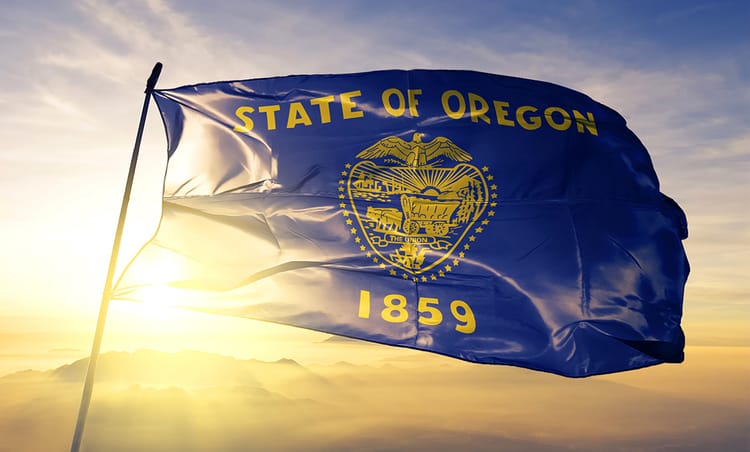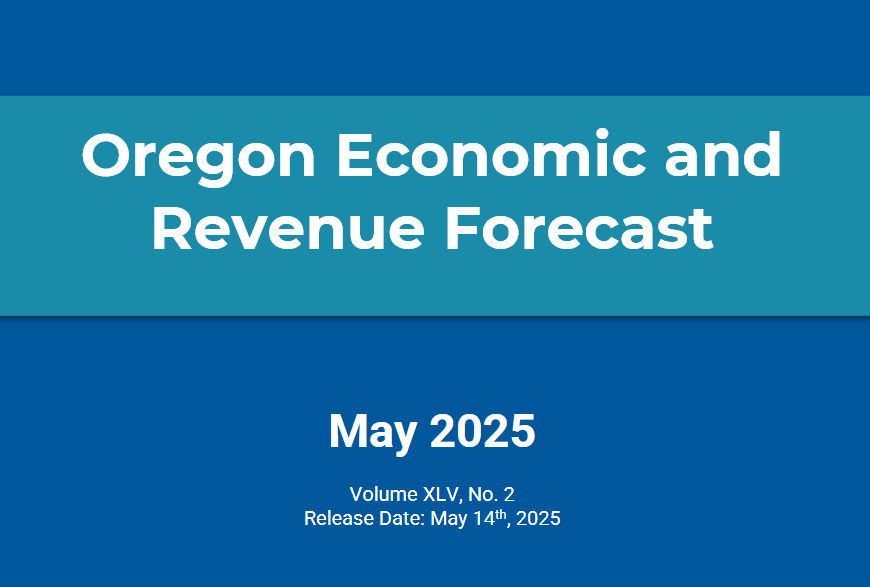Running on Fumes

The Takeaway
With just two weeks remaining, Oregon’s legislative session has entered its most volatile and unpredictable stretch. After nearly six months of policy development and political wrangling, it’s tempting to believe the end is finally near. Yet this is when the work compresses, and the stakes intensify. The legislature is about to cram months of unresolved priorities into two short weeks. This phase also sheds the normal public posting guardrails that require advance notice of agendas and amendments. Though designed to help the legislature wrap up its business, these expedited procedures often keep controversial amendments hidden until the last moment, leaving little room for public input.
Legislature Finally Releases Transportation Funding Draft
The Capitol has spent nearly the entire session waiting for the unveiling of a transportation funding proposal. On Monday, the Joint Committee on Transportation Reinvestment, a special committee created by the presiding officers because the original committee failed to produce any legislation, introduced HB 2025 as its first draft.
As introduced, the bill would:
- Increase the state’s gas tax by 15 cents per gallon (currently 40 cents);
- Index the gas tax to inflation moving forward;
- Raise the statewide transit payroll tax from 0.1% to 0.3%;
- Impose a new 2% privilege tax on new vehicle purchases and a 1% tax on used vehicles valued over $10,000;
- Increase vehicle registration fees;
- Create a new per-mile fee for electric and hybrid vehicles;
- Revise the weight-mile tax paid by heavy trucks;
- And expand or increase fees for licenses, permits, tests, endorsements, and other regulatory programs.
Unlike past packages featuring headline-grabbing new projects, the proposal for this session is shaped by constraint. The Oregon Department of Transportation is facing immense cost overruns for road and highway projects promised by the legislature’s 2017 package, including many arterial highway projects in the Portland area, and has fallen deeply behind its basic maintenance workload, such as filling potholes, resurfacing roads, and removing snow. The funds raised by this funding plan would largely backfill those cost overruns and expand access to transit services, along with funding the agency’s day-to-day operations.
Oregon has a long tradition of bipartisan transportation deliberations. Typically, transportation packages are introduced by the Democratic and Republican leaders of the committee responsible for developing the plan. This year, however, the proposal was introduced by the committee, without any legislator listed as its sponsor, and by a partisan vote.
The committee held evening hearings throughout the week, giving stakeholders and the public a chance to weigh in on the draft. While the transportation package, or at least the idea of one, has loomed over the session, the pressure of constitutional adjournment is now in full view. On Monday, committee leadership informed members and the public the revenue estimates for all of the tax proposals would not be available until after the public testimony concluded, frustrating Republicans and road users concerned about increasing transportation costs. (This afternoon, Oregon Public Broadcasting reported the revenue estimate for the proposal is nearly $2 billion per year once fully implemented.)
Democratic supermajorities in both chambers technically mean they could pass a transportation funding package on a partisan vote. On a practical level, however, it may not be nearly as simple. Oregon’s tradition of bipartisan transportation packages is often born out of necessity. Funding mechanisms that pay for road and highway projects, like the gas tax and vehicle registration fees, cut directly into family pocketbooks and create a higher propensity for political backlash. In 2000, the legislature passed a transportation plan replacing the weight-mile tax paid by truckers with a diesel tax and increasing the general gas tax. Stakeholder groups representing non-truck road users collected signatures and referred it to the ballot as Measure 82, which resulted in an overwhelming defeat, with 87.49 percent of voters opposing the legislation.
A bipartisan package doesn’t guarantee the measure avoids a referendum, but it offers a stronger defense against the use of Oregon’s constitutional veto by the voters. And a political committee is already raising money to gather signatures, ready to put the question to voters if lawmakers can’t steer this plan out of the ditch and back onto stable ground.
Lawmakers Finalize Proposal Granting Unemployment for Striking Union Members
Another flashpoint in the final days of the session is a measure extending unemployment insurance benefits to striking workers. Earlier in the session, the Senate passed a bill offering 26 weeks of unemployment benefits to union members on strike, effectively eliminating the economic pressures that discourage a union from locking itself out of work. Toward the end of its session, the Washington legislature adopted a similar law with a shorter six-week benefit window. Washington’s shorter benefit period prompted discussions about aligning Oregon’s proposal, much to the chagrin of the state’s unions. Late last week, the Oregon Senate failed to concur with House amendments to the measure and sent the bill to a conference committee. In that conference committee, the legislature ultimately reduced the benefit window from 26 weeks to 10 and sent the bill to the governor’s desk for signing.
Looking Ahead: A Tense Descent
The final two weeks of session feel like a family vacation that’s gone on just a little too long — you’re ready to be home and the last stretch tests everyone’s patience.
In the days ahead, the number of issues will shrink, but the weight of each remaining issue will grow. As we’ve said before, this is one of the most precarious phases of any session. With schools out for the summer and the Fourth of July holiday approaching, lawmakers are eager to wrap up and return home — some to regroup, others to lick their political wounds. That urgency shifts the Capitol’s political gravity. As the finish line comes into view, lawmakers become more likely to fold than fight, and major proposals can move with minimal scrutiny.
The end may be in sight, but the light at the end of the tunnel isn’t always daylight. In these final days, it might just be the oncoming train.
Author's Note: My proofreader, who also happens to be my wife, asked if the title of this newsletter was the start of my autobiography. For anyone working in or around the legislative process, I thought that comment was relatable to all of us.





